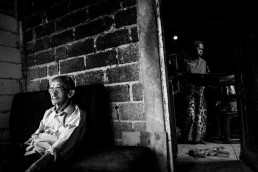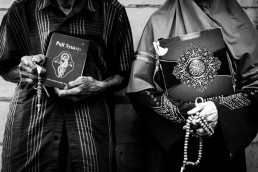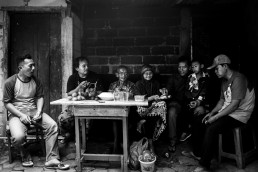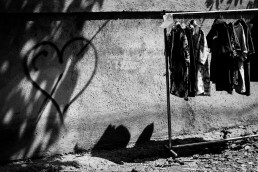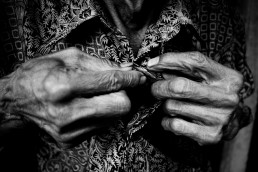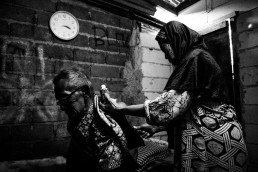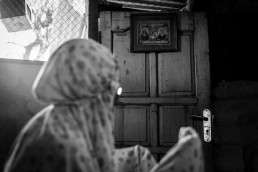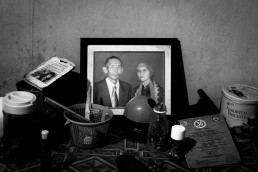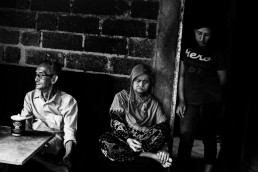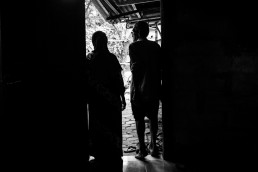Fade Away
FADE AWAY
Muhammad Hidayat (Tempo, Jakarta)
The diversity of Indonesians’ ways of life make interfaith marriage an undeniable reality as well as a lengthy controversy with no clear solutions. Law No. 1 of 1974 governs marriages of Indonesians, but there is still ambiguity in understanding and applying the law because it does not firmly regulate interfaith marriages.
A lot of people who wish to have interfaith marriage are facing difficulties in getting their marriages legalized because it is against the state law. Many try to get around the law, for instance by requesting the court to conduct an interfaith marriage, getting married overseas, or simply agreeing upon which religion the marriage ritual will be based on.
The story of Richardus Carda Napiun (75)—better known as Engkar— and Martha Aroh Arih (73) is an example of an interfaith couple who chose to have a Catholic wedding. Married in 1967, they currently live in Kampung Sawah, Bekasi. Aroh, who was a Muslim, converted to Catholic when she got married to Engkar. They had 10 children, one of whom passed away at birth. Five of their children are Catholics while the other four are Muslims.
A few years after their marriage, Aroh converted back to Muslim without Engkar’s knowing. “Well, maybe this is a test from God for my family. I have to accept it,” Engkar says. Afterward, disappointments came, causing rifts between the couple, and now, the conflicts have become more real.
Sometimes love is so distant from logic, but religion also plays an important role in a family. There are consequences to many aspects that need to be considered when deciding to have an interfaith marriage, such as psychological and judicial aspects. This a problem so close to us all and can happen to any one.

